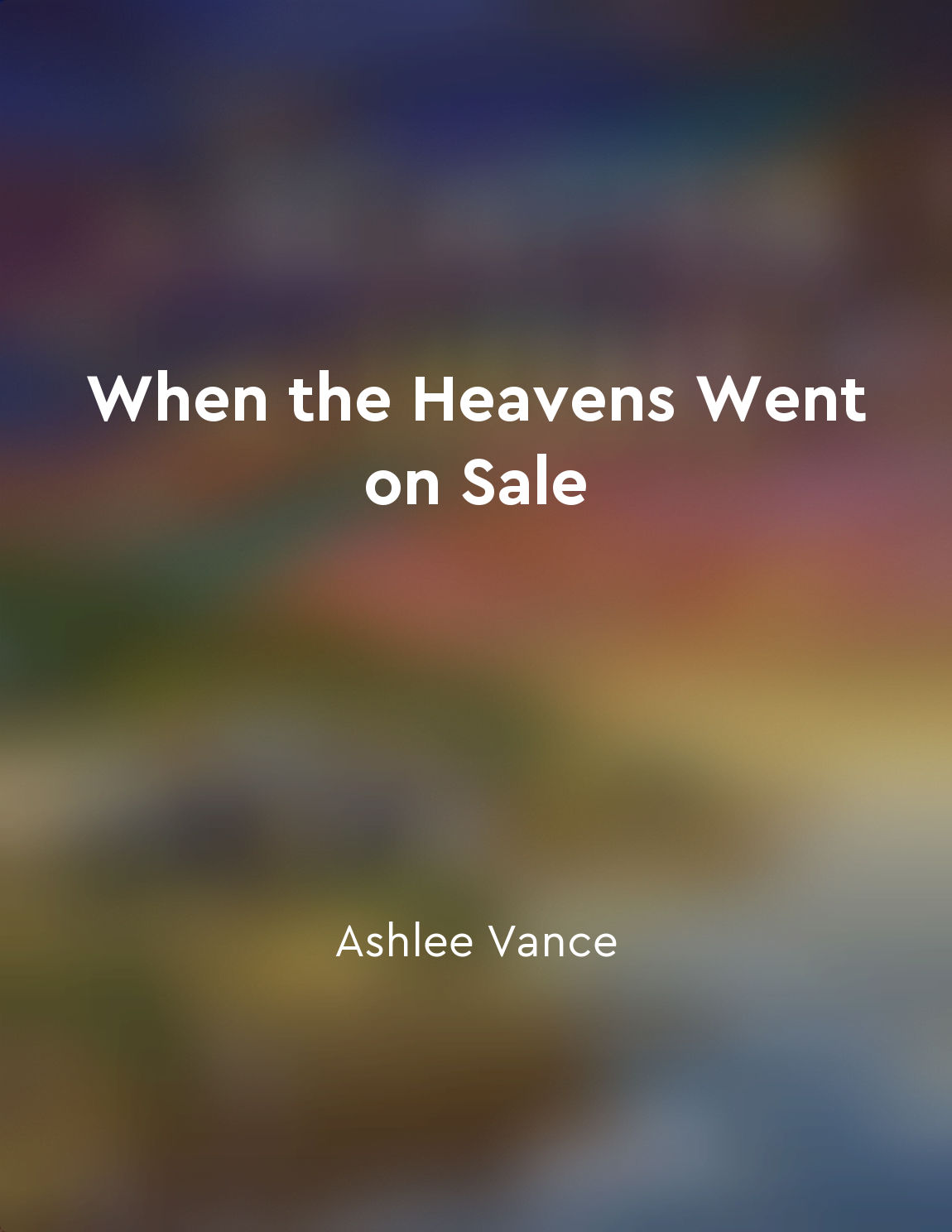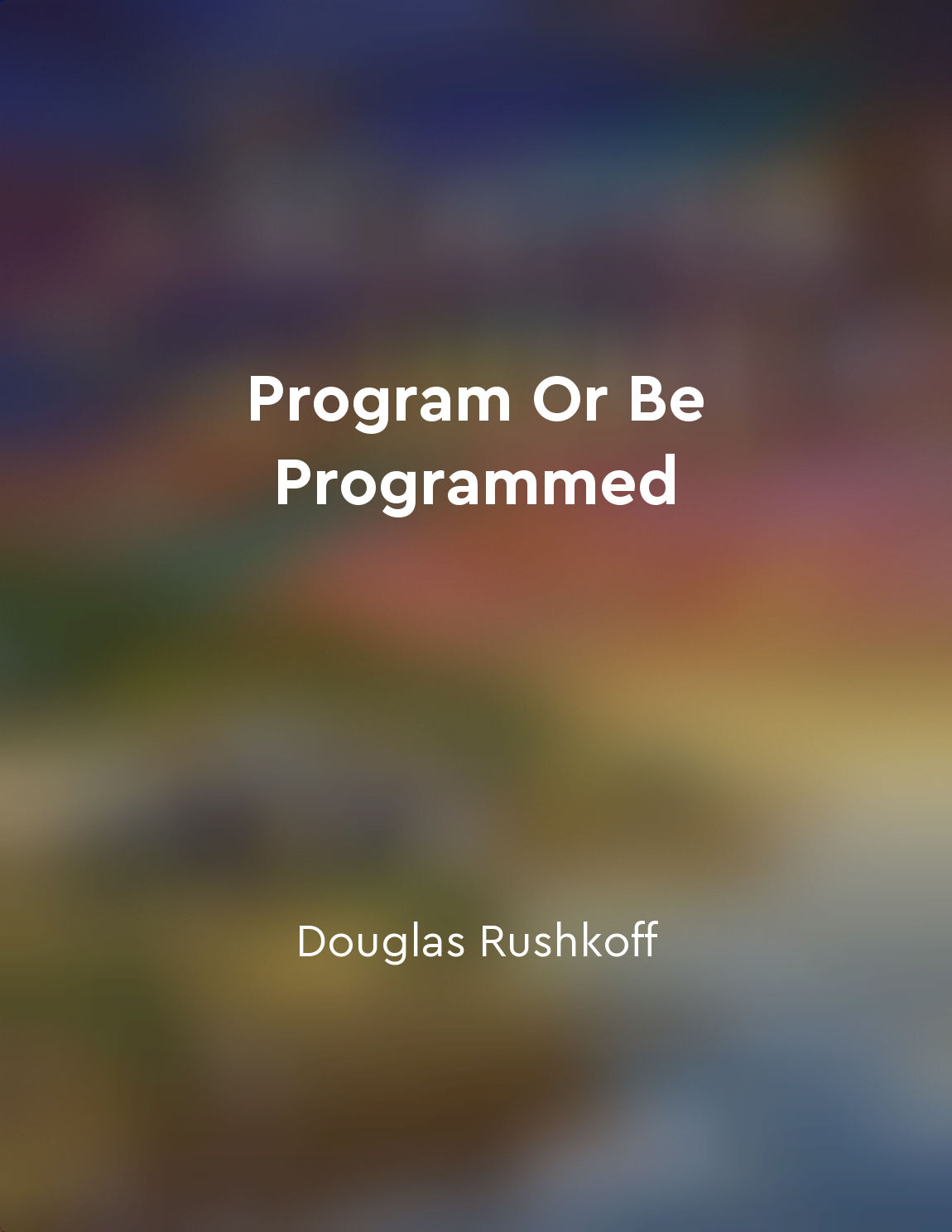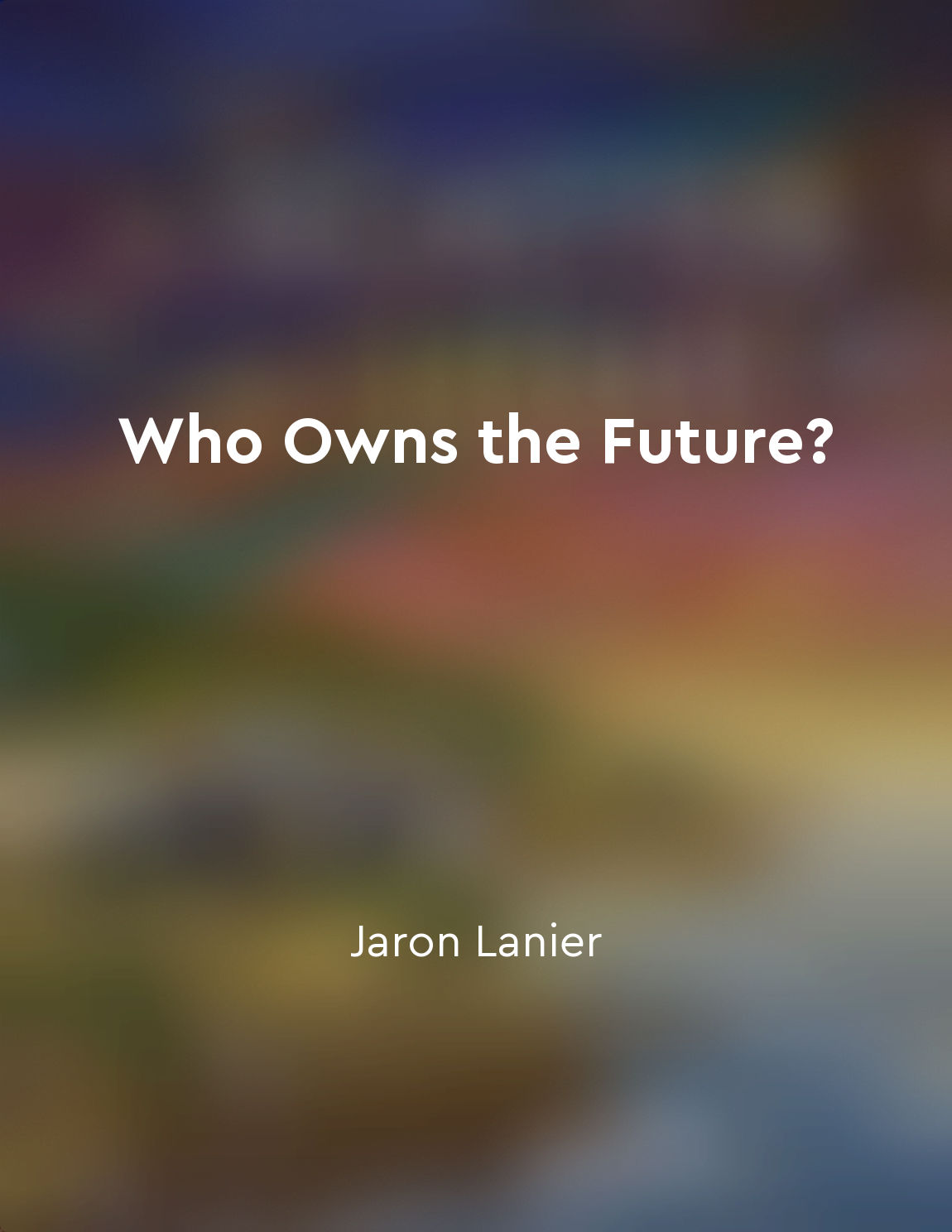Information should not be free from "summary" of Who Owns the Future? by Jaron Lanier
The idea that information should not be free may seem counterintuitive in a world where we have grown accustomed to accessing vast amounts of information for free online. However, this notion is central to understanding how the digital economy operates. When information is freely available, it tends to concentrate wealth and power in the hands of a few large corporations while devaluing the contributions of individuals. In the digital age, information has become a form of currency. Companies like Google and Facebook have built massive fortunes by collecting and monetizing the data that we generate through our online interactions. This data is used to target advertisements, shape our online experiences, and influence our behavior in ways that are often invisible to us. While we may not pay a direct monetary cost for using these services, we are still paying a price. Our personal data is being harvested, analyzed, and exploited for profit without our full understanding or consent. This asymmetry of power is at the heart of the argument that information should not be free. When information is treated as a commodity, individuals are able to assert ownership over their data and receive fair compensation for the value they provide to the digital economy. This shift towards a more equitable distribution of wealth and power is essential for ensuring that the benefits of technological innovation are shared more equitably among all members of society. By challenging the notion that information should be free, we can begin to imagine new economic models that prioritize the interests of individuals over the profits of a few tech giants. This is not a call for a return to a pre-digital era, but rather a recognition of the need to rethink the ways in which we value and exchange information in a digital world. Only by acknowledging the true cost of "free" information can we begin to build a more just and sustainable digital economy.Similar Posts

Disruption became the new norm in the business world
The business world was once a place where companies could operate steadily without much fear of sudden changes. However, this s...

Nuclear weapons pose global security threats
Nuclear weapons have the potential to bring about catastrophic consequences on a global scale. The destructive power of these w...

Programming gives us the ability to customize and adapt technology to our needs
Programming is the new literacy of the digital age. Just as the ability to read and write is necessary to participate fully in ...
Automation and algorithmic decisionmaking
Automation and algorithmic decision-making have become increasingly pervasive in our society, shaping the way we interact with ...

The internet has reshaped the way we interact with information and each other
In this age of digital interconnectedness, the internet has fundamentally transformed the way we access and share information. ...
Our data is being used against us
Many of us are unaware of the extent to which our data is being collected, stored, and analyzed by various organizations. This ...
